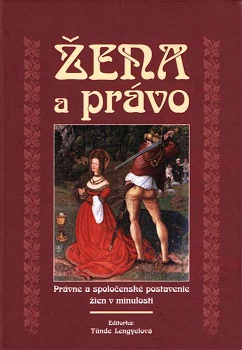Materinská starostlivosť a šľachtické vzdelávacie inštitúcie
Maternal Care and Educational Institutions for Nobility
Author(s): Olga Khavanova
Subject(s): Gender Studies, Education, Culture and social structure , History of Education, Family and social welfare
Published by: Historický ústav SAV
Keywords: women; nobility; maternal care; education;
Summary/Abstract: The second half of the eighteenth century in the Habsburg Monarchy was the age, when political practice and ideology of the Viennese court, traditionally described as absolutism, absorbed enlightened methods and principles. The watchword of the "common good" demanded the nobility to be useful subjects and gave an opportunity to useful subjects of common origin to be ennobled. An important instrument of the social policy was education, understood as both the process of accumulation of knowledge, and as formally recognised degree of competence. In the Habsburg Monarchy, and Hungary in particular, where the numerous nobility still remained both the pillar of the old regime and one of the main protagonists of modernity, privileged educational institutions (colleges, academies) served the task of bringing up the loyal and competent bureaucratic elite to fill different levels of the royal and county administration. It was the whole range of scholarship funds under the patronage of the king, the church, or private donators that served the task to ease access to education for lesser, impoverished nobles and special categories of commoners (employees of the Hungarian Treasury Chamber and offices subordinated to it). The article examines the evolution of admission policies to privileged schools of the Habsburg Monarchy in the 1750s1780s with a special attention paid to the justifications adduced by the applicants, especially women, and requirements put in by the authorities to the petitioners. In the Age of Counterreformation those were converts, orphans and the offspring of impoverished nobles, who enjoyed the primary right to hold such scholarships, and female petitioners (mostly widows), were stressing the facts of conversion, bitter orphanage of their sons and ultimate poverty of their families after the husband's death. Inasmuch as the authorities began to stress the subjects individual contribution to the common good, mothers were to emphasise their late husbands careers and their family's traditional loyalty and zeal on the royal service. In the system of values, where the contribution to the common good was turning into the main criterion of granting social support in the form of scholarships women could not turn into a special group with formally fixed rights and privileges. At the same time the relatively high share of petitions written in the name of women demonstrates, that having widowed and turned into the heads their families, they were bearing responsibility for the future of their children and were competing not without success for their better lot with male and other female petitioners.
Book: Žena a právo. Právne a spoločenské postavenie žien v minulosti
- Page Range: 244-255
- Page Count: 12
- Publication Year: 2004
- Language: Slovak
- Content File-PDF

